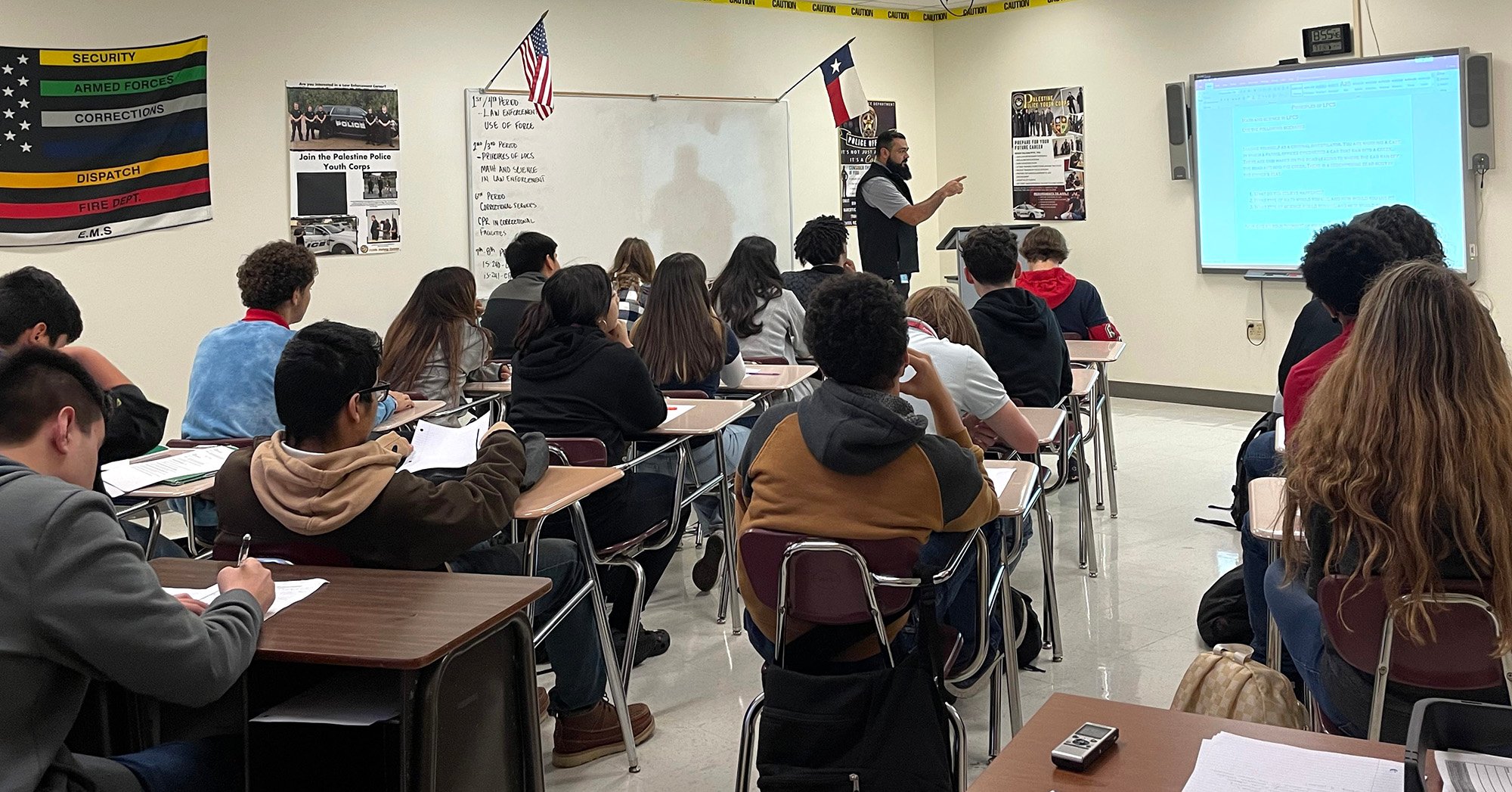
House Endorses Prison Closures, Re-Entry Programs
Above: State Rep. Tan Parker (R-Flower Mound)
On Saturday morning, the House showed just how far the criminal justice debate in Texas has come.
The House passed SB 213, the sunset bill for the Texas Department of Criminal Justice. The measure reauthorizes the agency with a few major changes, including an amendment to prioritize closure of certain private prisons.
That’s a remarkable development. Not long ago, many legislators wanted to build more prisons, especially privately operated prisons. But on Saturday an amendment by conservative Weatherford Republican Phil King will require the department to prioritize closing the most costly private prisons over less-expensive ones (in a “cost-benefit analysis,” as King put it).
Quite a few Republicans have embraced a smart-on-crime approach and believe that mass incarceration, especially of nonviolent offenders, is not only fiscally irresponsible, but doesn’t reduce crime. Tan Parker (R-Flower Mound), chair of the House Corrections Committee, said, “It is our intention here to be fiscally responsible. … I believe it is very important that we close at least two facilities, if not more.”
“Thankfully, it’s a good situation that we find ourselves in Texas, that crime is on the decline,” he said.
The sunset bill, authored by Rep. Walter T. “Four” Price (R-Amarillo), was approved by a voice vote and also encourages the department to establish a clear “re-entry” plan to transition inmates back into society.
The floor debate did include a few tense moments, including an exchange between Rep. Marisa Marquez (D-El Paso) and Price. Marquez’ amendment, which would have required the TDCJ to report how much it costs to hold inmates in solitary confinement, was defeated. Her amendment was to be the first discussed, but she withdrew it to consult with Price. After some negotiation, she brought it back onto the floor. “We have discussed the amendment in detail, and we have revised it,” Price said. But a few seconds later, he added: “I’m going to be voting no, but I want to leave this to the will of the House.”
Marquez explained that she wants the TDCJ to report how much the state pays per inmate so Texas can find a way to minimize the money spent on solitary. “But I don’t want to do that if we don’t have information,” she added. “So what this amendment does, is it looks for that information.”
After the amendment was defeated, Marquez told the Observer, “I should’ve called for a record vote” instead of a voice vote. “I think that would’ve changed a lot of people’s minds. I think many of the Republican leadership voted with me, as I could look up, because they could understand that we are in a financial crisis and that we’re looking at every different agency, asking them to cut.”
“We have an agency that has continued to be irresponsible in reporting those types of numbers and the cost per ad-seg inmate in our institutions,” she said.
In addition to Marquez’ financial qualms, there is strong evidence that keeping prisoners in solitary confinement for long periods of time can be destructive to the psyche.
Marquez continued, “I think it’s unfortunate that the…issues of mental health, medical care, probation and parole have not hit this floor this session.”


